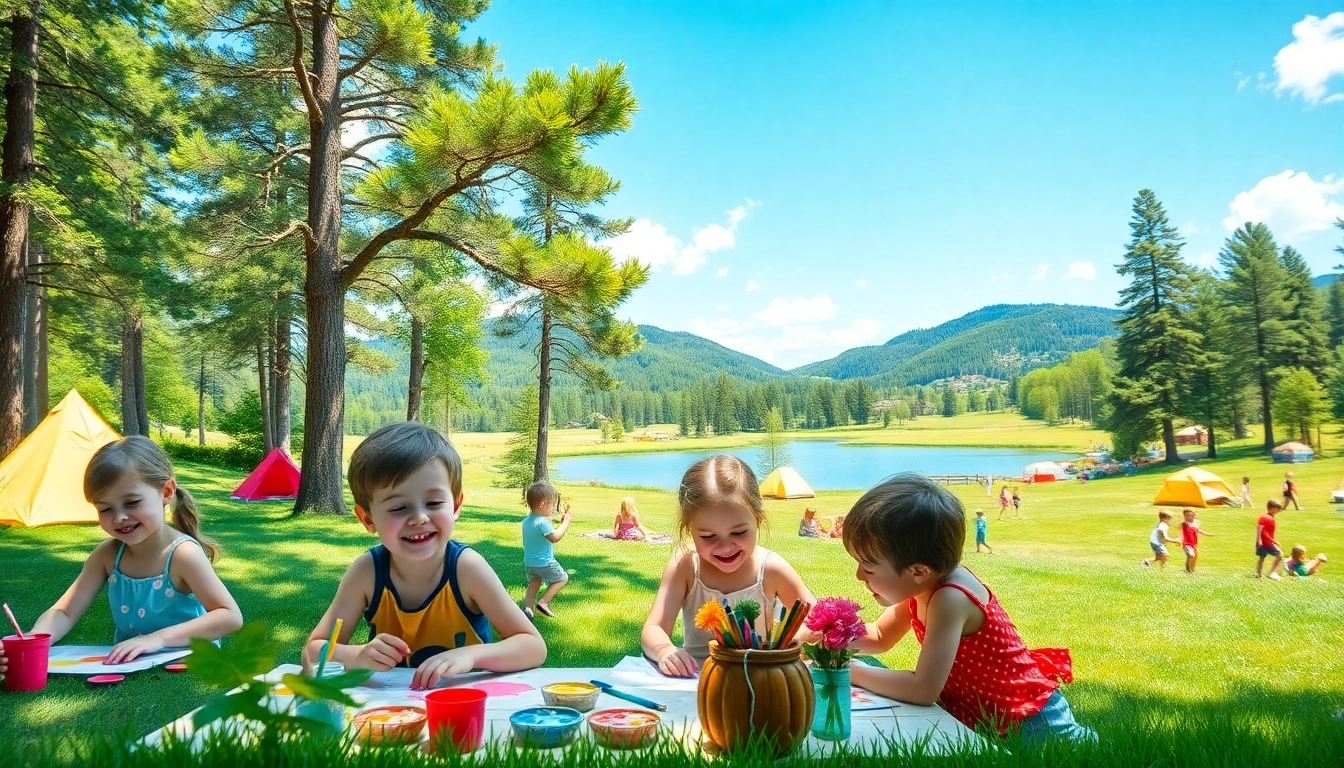Understanding Holiday Camps
Holiday camps have become a cornerstone of fun and creativity for children and families alike. These camps offer an exciting range of activities and experiences throughout school holidays, giving kids a chance to learn new skills, make friends, and create lasting memories. Whether you’re seeking a place for your child to explore their interests or simply looking for a way to keep them engaged during the break, holiday camps are an excellent choice for families.
What Are Holiday Camps?
At their core, holiday camps are organized programs that provide children with a variety of recreational activities during school vacations. These camps can take many forms, including day camps and overnight stays, and typically span a range of interests—from sports and arts to outdoor adventures and academic enrichment. Holiday camps not only aim to provide a fun environment but also focus on personal development through structured activities and social interactions.
History and Evolution of Holiday Camps
The concept of holiday camps dates back to the early 20th century when they were primarily designed to provide children with a respite from urban life. Many original camps focused on outdoor education and fostering a love for nature. Over the decades, these camps have evolved to include a diverse range of activities that cater to various interests and age groups. Today, holiday camps blend traditional values of friendship and teamwork with modern educational techniques, ensuring a well-rounded experience for attendees.
Benefits of Attending Holiday Camps
Holiday camps offer numerous benefits for children. Some of these benefits include:
- Skill Development: Camps often emphasize skill-building, allowing children to learn new hobbies or sports.
- Social Skills: Interacting with peers helps children develop important social skills and build friendships.
- Confidence Building: Overcoming challenges at camp can boost self-esteem and confidence.
- Physical Activity: Many camps encourage physical activity, promoting a healthy lifestyle.
- Exposure to New Experiences: Camps often provide opportunities for children to try new activities, from arts and crafts to technology.
Types of Holiday Camps
When it comes to selecting a holiday camp, options abound. They can be categorized into several types based on focus areas.
Sports-Focused Holiday Camps
Sports-focused holiday camps are designed for children interested in athletics. These camps offer rigorous training in various sports, such as soccer, basketball, swimming, and gymnastics. The goal is not only to enhance skills but also to foster teamwork, discipline, and an understanding of sportsmanship. Coaches often teach attendees strategies for improvement, which helps them to not only grow as athletes but also as individuals.
Arts and Crafts Holiday Camps
For the creatively inclined, arts and crafts holiday camps provide a space to explore artistic expression. Children can engage in painting, sculpture, photography, drama, or music. These camps typically encourage self-expression and creativity, allowing kids to discover their artistic abilities and showcase their work in exhibitions or performances. Such experiences can deepen children’s appreciation for the arts and inspire them to pursue creative endeavors in the future.
Outdoor Adventure Holiday Camps
Outdoor adventure camps emphasize exploration and connection with nature. Activities may include hiking, rock climbing, kayaking, or camping. These camps often focus on teaching survival skills, environmental stewardship, and the importance of teamwork through shared outdoor experiences. By navigating challenges in nature, children learn resilience, adaptability, and the value of working together to accomplish goals.
Choosing the Right Holiday Camp
Selecting the appropriate holiday camp for your child involves considering various factors. The right camp should not only align with your child’s interests but also provide a safe and supportive environment.
Factors to Consider When Selecting Holiday Camps
When evaluating potential camps, keep the following factors in mind:
- Age Appropriateness: Ensure the camp activities are suitable for your child’s age group.
- Location: Consider how far you are willing to travel; proximity can influence convenience.
- Duration and Schedule: Look at the length of the camp and its daily schedule to ensure it fits your family’s needs.
- Cost: Evaluate the camp fees and what is included—some camps may offer scholarships or financial aid.
- Camp Philosophy: Research the camp’s philosophy and values to ensure they align with your family’s beliefs.
Finding Camps that Fit Your Interests
As you begin your search for holiday camps, utilize resources such as community organizations, schools, online directories, and social media platforms. Attend camp fairs or open houses to gain first-hand insight into the camps and interact with staff and directors. These events offer opportunities to ask questions and determine if the camp aligns with your child’s interests and needs.
Reviewing Camp Credentials and Safety
Ensuring your child’s safety should be a top priority. Verify the camp’s credentials by checking for certifications, staff qualifications, and safety protocols in place. Investigate staff-to-camper ratios, the background checks conducted on camp counselors, and emergency procedures. Transparency in these areas can provide peace of mind, assuring you that your child is in capable hands.
Maximizing Your Experience at Holiday Camps
Once you’ve chosen a holiday camp, preparation is key to maximizing your and your child’s experience. Here are strategies for ensuring a fulfilling camp experience.
Preparing for a Holiday Camp
Preparation starts before camp begins. Discuss expectations with your child and encourage them to express any concerns or questions they may have. Involve them in the packing process to ensure they have the necessary gear and supplies. Familiarize them with the camp’s schedule and activities to build excitement and set a positive mindset.
Engaging with Camp Activities
Encourage your child to participate fully in all camp activities. While they may have preferences, exploring a variety of options can lead to discovering new interests or passions. Remind them to stay open-minded and try activities that are outside their normal comfort zone—this is where growth often happens. Active engagement not only enhances enjoyment but also fosters camaraderie with fellow campers.
Building Friendships at Holiday Camps
Friendship development is one of the most cherished aspects of holiday camps. Encourage your child to interact with others and actively participate in team projects or group activities. Being friendly and approachable enhances their ability to connect with peers. Besides, shared experiences at camp—whether challenges or triumphs—can create bonds that last well beyond the camp session.
Future of Holiday Camps
The holiday camp landscape is continually evolving to meet the interests and needs of today’s families. Understanding current trends will help ensure relevant, engaging experiences for future campers.
Trends in Holiday Camps
Recent trends show a rise in themed camps that cater to specific interests, such as STEM (science, technology, engineering, and mathematics), eco-awareness, or cultural immersion. This diversification reflects parents’ desires for holistic, rounded experiences for their children. Camps focusing on wellness, mindfulness, and emotional development are also gaining traction, as the importance of mental health becomes increasingly recognized.
The Role of Technology in Holiday Camps
Technology is playing a pivotal role in how camps operate. Many camps are incorporating online platforms for registration, communication, and scheduling. Some camps even offer digital workshops and activities to help kids learn modern skills. However, a conscious effort is being made to balance technology with outdoor activities, ensuring kids log off and engage with their peers and surroundings.
How Holiday Camps are Adapting to New Norms
In response to changing societal norms and challenges, holiday camps are implementing enhanced safety measures and promoting flexibility. Adaptations may include smaller group sizes, increased sanitation practices, and virtual options for kids who prefer or require distance learning. The ability of camps to adjust and innovate ensures that they remain a crucial resource for child development and enrichment during school holidays.



